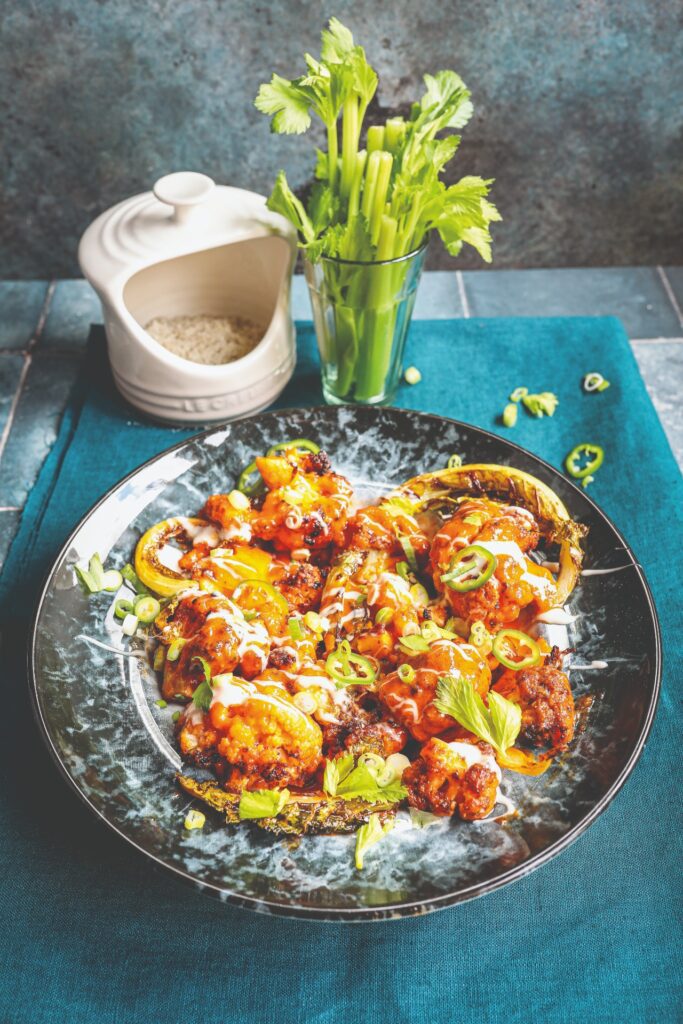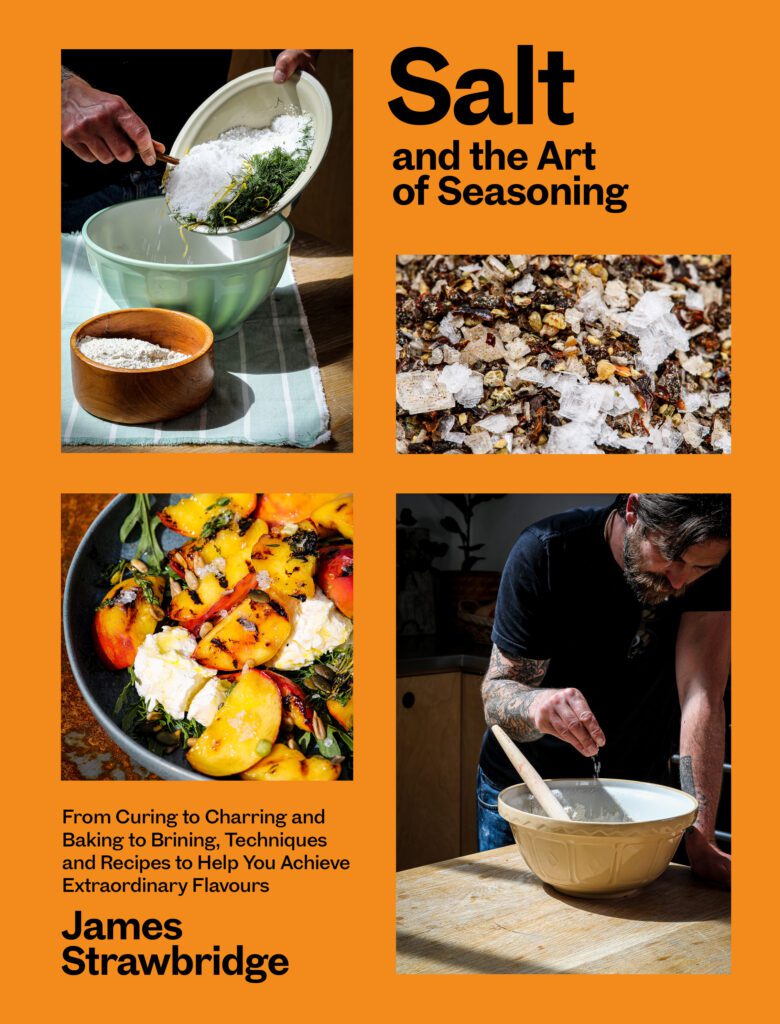“A sparkle of white flakes on a seared steak in the sun. Silky smooth, buttery potato mashed with smoked sea salt. Salt falling gracefully from your fingertips onto grilled asparagus in chaotic perfection. Every pinch makes a difference to an ingredient and changes the way we eat.
I want salt to be seen as extraordinary. To be perceived as so much more than a cheap commodity and instead be seen as an essential gourmet ingredient that is as important as a chef’s knife, as vital to cooking as using a hot pan. I want salt to be something you are excited about, not a last resort that is sprinkled over bland food to try and improve it as it’s served.
In the past, salt enjoyed a highly prized status at our tables and was used in many ways: as a currency, as a ritual gift, to preserve food over winter and as a key ingredient within the ceremony of cooking. Yet today, salt is vilified as a risk to public health and is driven out of our diet. Many modern salts are stripped of their beneficial minerals, coated in anti-caking agents and then sold back to us either as a heavily processed sodium chloride crystal or as over-priced food supplements. In reality, in their natural, unrefined form, sea salts have the perfect balance of minerals for us to thrive, corresponding proportionally to the minerals found in our bodies and so matching our own bodies’ requirements. Salt is essential for life.”
The following recipes are from James Strawbridge’s new book Salt and the Art of Seasoning (Chelsea Green Publishing, May 2023), £27, and are reprinted with permission from the publisher
Kimchi Fried Rice
Kimchi tastes particularly fantastic with fried rice – just make sure you add it right at the end of cooking for a sweet and sour, spicy seasoning to the dish.
Serves 2
150g wild rice
1 tbsp sesame oil
6 radishes, finely sliced
1 pak choi, sliced
4 tbsp kimchi
2 tbsp toasted seeds (a mix of pumpkin and sunflower seeds fried with 1 tsp tamari sauce until lightly toasted)
1 tbsp finely chopped coriander
1 lime, sliced into quarters
1 First cook the rice according to the packet instructions, then drain.
2 Heat the sesame oil in a wok over a high heat, add the cooked rice, the radishes and pak choi and toss for 2–3 minutes, then add the kimchi.
3 Stir-fry for 1–2 minutes to brown the veg slightly and take on the spicy kimchi flavours. Serve sprinkled with the toasted seeds, chopped coriander and lime wedges on the side.
Buffalo Cauliflower Wings
The key salt craft process here is pre-salting or brining the cauli before it’s cooked. Brining vegetables helps to tenderise them, making them perfect for grilling and roasting. When you treat dense vegetables more like meat, you can really improve your cooking results on a grill. Very often, dense vegetables will burn before they soften – things like carrots, beetroots or sweet potatoes are notorious for charring on the outside but remaining hard and crunchy at the core. Brining the cauliflower kick starts the cooking process and you have a couple of options on how to do it. Either pre-salt the vegetables in a cold brine for 24 hours in advance or cook them in the brine to parboil before grilling. If time allows, I always choose to pre-salt the veg for 24–48 hours, as this also starts a mild fermentation which can slightly enhance the lactic-tang flavours, but either method works well. If you are cooking in the brine, the ntry to soak the vegetables in the water for at least 1–2 hours beforehand, so that some diffusion can start to take place.
Serves 2
For the brined cauliflower
1 medium cauliflower, broken into florets( leaves and core discarded)
4 per cent sea salt to water (I use sel gris for this recipe)
1 tbsp cider vinegar
1 tsp caster sugar
1 bay leaf
1 tsp black peppercorns
1 tsp dried chilli flakes
2 tbsp rapeseed oil
Pinch of chilli salt flakes
To serve
4 tbsp hot pepper sauce
2 tbsp blue cheese dressing (optional)
Pinch or two of sel gris (or another crunchy crystal salt)
2 spring onions, finely sliced
½ green chilli, de-seeded and thinly sliced (optional)
4 celery sticks
1 Put the cauli florets into a saucepan. Measure/weigh how much water it takes to cover the cauliflower florets in the pan and then add 4 per cent of this weight (of the water) in salt to the water (so if you are using 500ml of water, you’ll need to add 20g of salt).
2 Add the vinegar, sugar, bay and spices. Stir well to dissolve the salt. Cover the pan and leave for as much time as you have available, ideally 4–6 hours. The longer you pre-salt the cauli florets for, the more tender they will be when you grill them.
3 Next, I like to parboil the cauliflower in the brine for 5–10 minutes. Once parboiled, strain the cauli florets in a colander and leave to dry for a few minutes to allow some water to evaporate off, then tip into a bowl and toss with the rapeseed oil and chilli or barbecue salt.
4 Grill the cauli florets (in a single layer) on a rack over a hot barbecue or on a baking parchment-lined baking tray under a preheated hot grill, for 10–15 minutes, turning occasionally, until they start to char. Once ready, toss the florets in the hot pepper sauce and serve with a drizzle of blue cheese dressing (if using) and a pinch or two of sel gris (or another crunchy crystal salt) to season.
5 Garnish with the spring onions and green chilli (if using), with the celery sticks served on the side.


